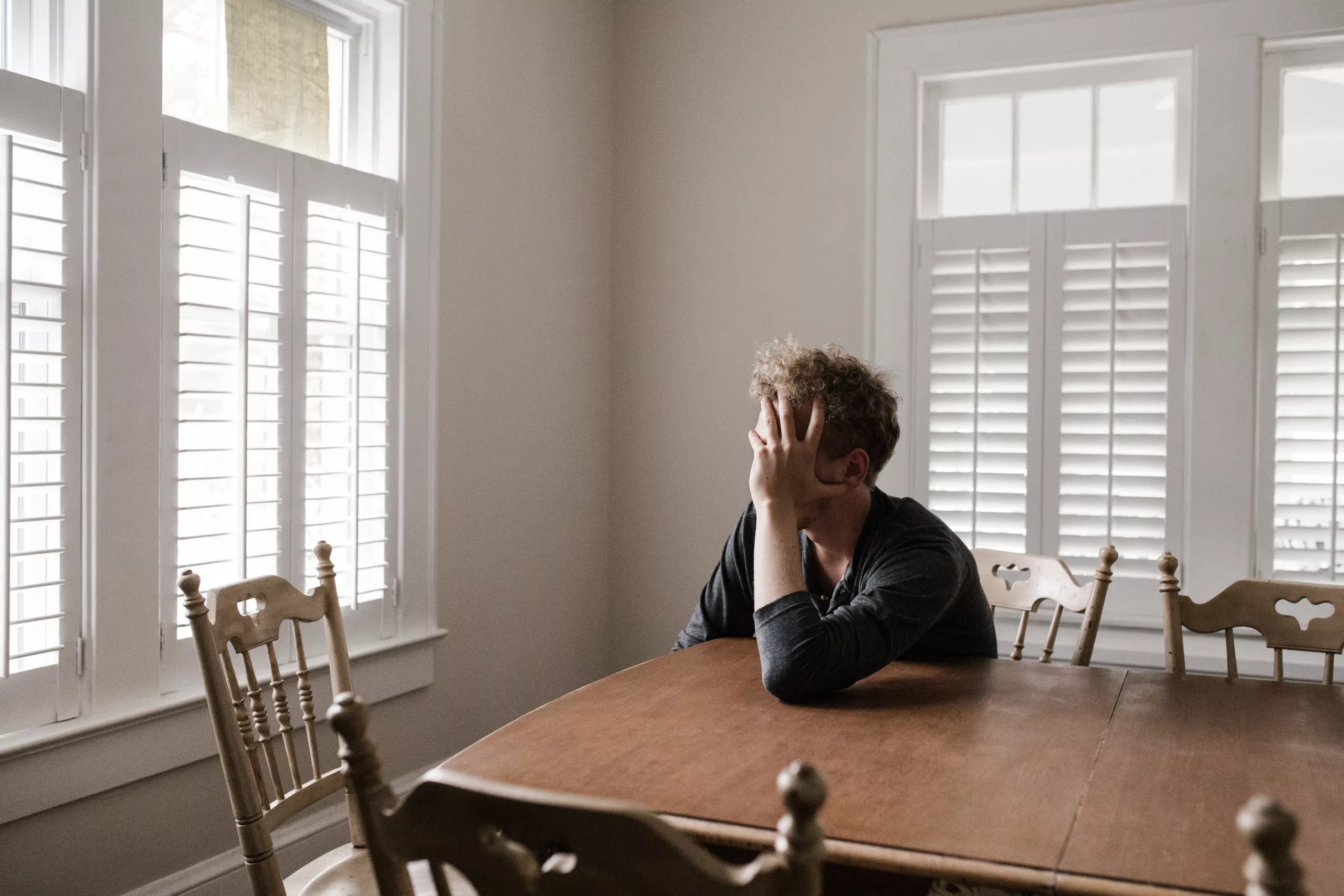Benzo Detox Center in Missouri
Benzodiazepines, commonly known as benzos, fall under the depressant category of drugs. It is worth mentioning that the name of this category might seem to imply that they cause emotional depression or the symptoms and effects normally attributed to the condition, which is completely not the case.
These substances are called “depressants” because they slow down or depress the central nervous system (CNS). They induce relaxation in the muscles and are typically used by doctors in the treatment of certain conditions that cause physical and mental distress.
At Sana Lake Recovery Center in Dittmer, Missouri, our addiction specialists help people with addiction to benzodiazepines recover safely at our benzo detox center.

What Are Benzos?
Benzodiazepines also known as “benzos,” are also known as tranquilizers, hypnotics, sedatives, or anxiolytics as they are used to help relieve stress. Doctors often prescribe benzos for the treatment of various conditions such as anxiety, panic disorders, insomnia, acute alcohol withdrawal, and muscle spasms. Benzos also have anticonvulsant properties that make them effective in dealing with seizures. It does this by inhibiting the activity of nerves that initiate a seizure.
As many people often find it quite difficult to rest, relax, fall asleep, or get enough sleep, substances like benzos are used to induce deeper, longer sleep. Unfortunately, the same sedative effect derived from benzos can also become massively addictive for many people.
People who frequently take benzos tend to develop a tolerance for their effects, resulting in shorter effects. This, in turn, would prompt those using it to take more of it frequently. Benzodiazepines can create a state of euphoria, and this is an effect that many people with substance abuse disorders look for.
This euphoric effect is believed to be one of the main reasons why people use drugs like benzos outside of their recommended use. It is not uncommon for some individuals to take the medication more often than the doctor has recommended or in larger doses just to experience the euphoric effects for a longer duration.


More than the sedative and relaxant effects of benzos, this intense need to experience the euphoric effect is often the primary driver for people developing a heavy dependence on the substance, and also why they keep the dependence hidden for as long as they can.
If you or someone you know is dependent on or addicted to benzos or other drugs, a detox program can help them get back on the road to recovery and freedom from benzo dependence.
Identifying the 3 Types of Benzos
There are 3 different kinds of benzodiazepines. Some benzos are long-acting while others are short-acting. Some benzos have immediate action.
Some examples of benzos include:
- Xanax
- Valium
- Restoril
- Ativan
- Halcion
- Librium
- Klonopin
While these medications are prescribed to help people deal with various conditions and illnesses, some of them are also known to come with a high risk of addiction, such as Valium. Data from the Centers for Disease Control and Prevention (CDC) indicates that from 2019 to 2020, benzodiazepine-related overdose cases have increased by as much as 24%. The data revealed that from January 2019 to June 2020, overdose deaths linked to benzos accounted for almost 7,000 deaths in 23 US states. This figure accounts for 17% of all drug overdose deaths.
What is further alarming is that this death rate points to a 520% increase in deaths linked to benzodiazepines year-on-year from 2019 to 2020.
This highly dangerous dependence was only the beginning for many seeking the effects of potent sedatives.
At least 16% of all overdose deaths involving benzodiazepines also involved opioids, pointing to the fact that a large number of people who take benzos are mixing them with opioids, which is also a central nervous system depressant. Unless it is prescribed by a physician, people are advised not to mix these two substances as an overdose or even death is a high possibility. This is the reason why the label found on these prescription drugs comes with a warning.
The primary cause of death from the combination of benzos and opioids is the pulmonary depressing effect that results from the mix of the two substances. The magnified depressant effect of the two substances causes the breathing and heart rate of a person to slow down to dangerous levels. The significantly slowed breathing and heart rate mean less oxygenated blood has circulated in the body. The brain is heavily dependent on the presence of oxygen and will immediately be affected by the slowed breathing and heart rate caused by the combination of benzos and opioids.
How Do People Become Addicted to Benzos
When a person builds tolerance for a certain substance, it means that the effects of the drug begin to weaken. This happens after using the drug for a while. The body will eventually get used to the drug, and the person won’t have the same pleasurable experience anymore.
To get the desired result, people will have to use a larger quantity of the drug, which will give them the “high” they’re looking for. This, however, is already substance abuse. Substance abuse is particularly dangerous because the continued use of the substance creates significant physical, mental, and behavioral changes in the person.
The physical and mental changes usually start as uncomfortable side effects which escalate in severity over time. Some substances create profound changes in the body that are damaging, with some of the damage becoming permanent. Severe symptoms come as a natural consequence of continued substance abuse, although in most cases, the damage is not enough to make the person discontinue their use of the substance.
Other than chronic use, getting addicted to benzo doses is surprisingly easy because of how it affects the release of the neurotransmitter dopamine in the body. Dopamine is essential in how a person feels pleasure as it is connected to the brain’s “reward system.” Benzodiazepines increase dopamine levels in the body when taken, which accounts for the euphoria that users feel when they take them.
Prolonged addiction or substance abuse can also come with the worst withdrawal symptoms once the person decides to go into detox and rehab. This is particularly true with benzo withdrawal symptoms. Regardless of the uncomfortable withdrawal symptoms, medical detox is still the surest way to avoid permanent damage that comes with continued benzodiazepine dependence.
Getting a person hooked on benzos to medical detox or to continue medical benzodiazepine detox and rehab, however, is immensely difficult for the same reason that they got hooked on it in the first place.
People who have experienced it say that benzodiazepine withdrawal is inhumanly agonizing, as not only do they feel all the pain and discomfort that the withdrawal process is known for, but the immense drug cravings that they feel are nothing short of maddening. This is the same even when the person is under the care of a certified addiction professional or a specific treatment provider.
The staff at the benzo-specific treatment center admit that watching people go through the uncomfortable symptoms without feeling pity is becoming increasingly difficult. This is particularly true with patients who took benzos to deal with panic attacks, and now that they can’t take any of them, they suffer from the rebound effect.
Common Signs and Symptoms of Benzodiazepine Abuse
- Anxiety
- Fatigue
- Blackouts
- Moodiness
- Depression
- Drowsiness
- Memory loss
- Poor judgment
- Impaired vision
- Behavioral problems
- Poor decision-making
- Loss of coordination
- Lack of motivation
- Frequent headaches
- Emotional withdrawal
- Cognitive impairments
Benzo’s Addiction Also Affects Sleeping Patterns
Benzodiazepine abuse can also cause sleep disturbances such as insomnia and unpleasant dreams. Sometimes, individuals who are addicted to benzos may become irritable and show signs of aggression.
Paranoia that is so severe that people could think that the person has a mental illness is also a common symptom of benzodiazepine addiction. Some people avoid their families or friends because of guilt or shame regarding their substance use disorder.
It’s also common for people to “doctor shop,” which typically involves going from one medical professional to another in search of more pills. In other cases, people may steal or ask for their family members’ medications to feed the physical dependence they have on benzodiazepines.
Individuals who are struggling with benzodiazepine dependence may show signs of addiction through changes in their personalities. They may become abnormally irritable and agitated. Some may distance themselves from their friends, becoming emotionally withdrawn.
Addiction can also cause people to lose interest in activities they once enjoyed. Individuals who are suffering from benzo addiction may also have trouble keeping up with various responsibilities in their lives. It can be hard to focus on other things when addiction is in the mix.
Those who notice a problem with addiction in their lives may begin to look for a way out. Many seek freedom by quitting drug use immediately, without going to treatment.
But, it’s important to avoid doing this because benzo withdrawal can be very intense and even deadly if individuals don’t have guidance and care from professionals.
Benzodiazepine Withdrawal Symptoms
When a person stops using the substance, he or she may experience some serious benzodiazepine withdrawal symptoms. These symptoms may be intense and very uncomfortable for individuals who have been using benzos for a while. In some cases, there could even be life-threatening withdrawal symptoms for those who attempt to quit “cold turkey” outside of a treatment facility. These people may need immediate medical assistance to survive the detox process and continue addiction treatment.


Some of the withdrawal symptoms that might affect those who are ending benzo use may include:
- Anxiety
- Delirium
- Paranoia
- Depression
- Headaches
- Muscular discomfort
- Feelings of dizziness
- Concentration problems
Sometimes, withdrawal can cause people to become nauseated. People may suffer from vomiting and stomach discomfort.
Delusional thinking and hallucinations are some of the common symptoms of withdrawal as well. Some individuals may struggle to focus and concentrate as they are withdrawing from benzo use.

In addition to these symptoms, people may begin to experience very intense and even dangerous effects of withdrawal. In some cases, individuals may pass out and become unresponsive or manifest other signs of protracted withdrawal symptoms. Seizures and coma can also come about as a result of benzo withdrawal, which further underscores the need to be in a treatment center.
Since withdrawal can be very serious, it’s important to detox with the help of a professional treatment program. This will considerably reduce all the discomfort and stress that comes with the benzodiazepine withdrawal timeline. Medical professionals at the detox facility could also determine if medically supervised detox is an option, even if only to relieve withdrawal symptoms and help the recovery process along.
Benzo Detox and Treatment at Sana Lake
Here at Sana Lake Recovery Center, we are dedicated to helping our members find peace and freedom from addiction. If you are suffering from a benzo addiction, let us help you safely detox and recover from this substance. You don’t have to wait any longer. Contact us to begin your journey to recovery today.
Contact Us
Get Help for You or A Loved One





